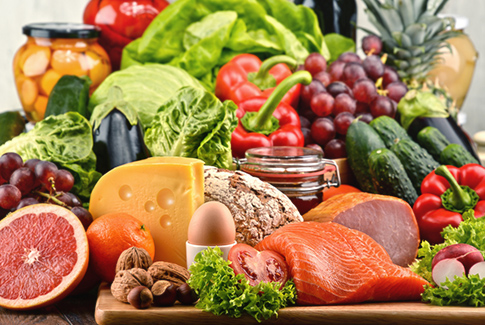We’ve all heard the buzzphrase “clean eating”, but what does it really mean?
There is no single definition, because ‘clean eating’ is marketing, not a science.
There are extremes of clean eating philosophy that will tell you that you need to cut out meat, milk, wheat or other foods. More widely, clean eating is usually about eating unprocessed and unrefined products such as whole grains, fruits, vegetables, lean meats and other foods that don’t contain artificial ingredients or preservatives.
…the denial principle – the philosophy that we are all baseless animals with the same metabolisms, digestive tolerance or activity levels, and we can’t be trusted to control ourselves with entire food groups
We’ve looked at what dietitians and nutrition scientists (not the people selling ‘clean eating’ books and diet programs) have to say. These experts often refer to Tosca Reno, a pioneer of popularising clean eating with her many books.
On the whole, experts are on board with several of the principles of Reno’s clean eating. Eating breakfast within one hour of waking, for example. Eating around 20g of protein with every meal (to control appetite and maintain muscle). Eat lean meats and choose healthy fats instead of saturated fats and trans fats. Eat more foods closer to their natural state instead of processed foods.
It’s easy to see how even just these principles alone could make you leaner. If you’re eating more vegetables, wholegrains and lean meats, and drinking more water instead of juices and soft drinks, then no doubt you’re cutting back on those ‘easy’ calories from sugars, excess fats and processed foods. There’s more to it than that, too. A Harvard School of Public Health study of over 120,000 healthy people concluded straight up that consumption of processed foods higher in starches, refined grains, fats, and sugars can increase weight gain. What’s more, many processed foods contain trans fats to extend the food’s use-by date, and these trans fats encourage fat storage in the body, particularly to the belly.
However, dietitians and nutrition scientists draw the line against some of the clean eating “pseudoscience” and “naturalistic fallacies”. These include:
- Recommendations for supplement and even drug treatments ranging from bee pollen to human growth hormone and vitamin K.
- Eat 5-6 meals a day/eat every 2-3 hours. This may help portion control for some people or create the illusion of not missing out on food. Another way to look at it is that you have more frequent opportunities to overeat and you focus too much on food as a routine or an outlet for boredom or to get up from your workdesk, etc. It’s not the silver bullet for weight loss or “boosting metabolism”, according to a review of studies on the subject.
- Drink 2-3 litres of water a day. The benefits of this are unfounded and often blamed on a popular fallacy. Remember that you consume water in food, too. If you eat more fresh foods, your food will be richer in water content anyway.
- Avoid chemicals, preservatives and artificial sugar. Sounds good, but it’s not possible to avoid chemicals and preservatives in food – salt is both, for instance. Reno also demonizes sugar substitutes, claiming they “work against you just as much as white sugar does”, but experts say there is no persuasive evidence to demonstrate that artificial sweeteners are harmful.
- Any suggestion that calories don’t really matter when you’re “eating clean” – they do. The energy in, energy out account balance still applies (i.e. you will still get fat if you eat too much clean food).
- It is “elitist”. Marketers will call products “clean” when they really just contain trendy versions of sugar (e.g. agave, cold-pressed fruit juices) or loads of saturated fat (e.g. coconut oil). Not everyone can get to farmer’s markets either, but processed and packaged goods such as wholegrain bread, dried or tinned beans, frozen vegetables and even canned deep-sea fish will do just fine, experts say. And eating more veges? Just figure out how to make that work for you – yes, even using conventionally grown or frozen veg. It doesn’t have to be organic brukale, kelp or microgreens – as long you aim to get a range of colours in your veges, you will get a range of nutrients.
Another common factor of clean eating is the denial principle – the philosophy that we are all baseless animals with the same metabolisms, digestive tolerance or activity levels, and we can’t be trusted to control ourselves with entire food groups. So NO dairy, NO grains, NO sugars, fruits, or whatever is the subject of that particular righteous eating cult’s hang-up. Sure, skip a food because you’re allergic to it, or because of religion, morals, it just doesn’t agree with you. Otherwise, learn to eat that food in its healthier forms, and have it in amounts and at a frequency that’s the right fit your body and your lifestyle.
So keep it simple, keep it sustainable. A version of ‘clean eating’ that isn’t too restrictive, expensive or time consuming will be one that you can stick to, and it is consistency over the long term that will help get you lean and healthy – and stay that way.





